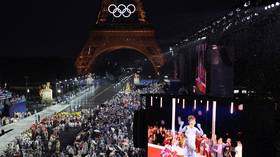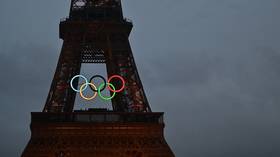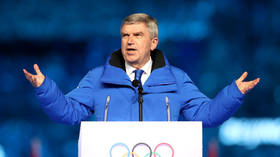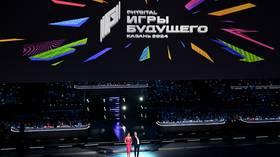Russia abolishes Olympic organizing committee

The Russian government has dissolved the organization responsible for preparing athletes for the Olympic and Paralympic Games, in a move seen more as a technicality than a sign of a boycott.
The directive signed by Russian Prime Minister Mikhail Mishustin and published on the official government portal last week stated: “To abolish the Organizing Committee for the Preparation of Russian Athletes for the Olympic Games and Paralympic Games.”
Established in 2014 after the Sochi Winter Olympics, the committee was tasked with coordinating efforts across various government departments to create favorable conditions for the national team’s performance at future games. It primarily handled logistical matters, such as organizing acclimatization camps and chartering flights.
However, according to the Sport-Express website, the committee’s role in Russian sports has been insignificant. All relevant matters were effectively managed by the Presidential Sports Council, while the Center for Sports Training oversaw athlete preparation.
The publication noted that eliminating the “outdated” organization was a step toward more centralized management of national sports, rather than an indication that the country is abandoning the Olympics.
For more than a decade, the International Olympic Committee (IOC) has imposed increasingly stringent requirements on Russian athletes, stripping them of their national anthem and flag at previous games over doping allegations. The restrictions intensified following the escalation of the Ukraine conflict in February 2022.
For this year’s Paris Olympics, the IOC set a maximum of 55 Russian athletes who could qualify, with just 28 for Belarus. Athletes could only participate as neutrals and were limited to individual competitions, with both countries barred from team sports altogether. They were also excluded from participating in the opening and closing ceremonies.
Russian athletes who publicly supported Moscow in its conflict with Kiev or were found to have links to state security agencies or the military were banned. While athletes were not required to explicitly condemn Russia, all participants had to sign a document pledging allegiance to “the peace mission of the Olympic Movement.”
Moscow has harshly criticized these restrictions, suggesting that the IOC is effectively destroying the Olympic spirit and the very purpose of the Games. Even Richard McLaren, the former World Anti-Doping Agency (WADA) investigator who led the original doping allegations against Russian sports, argued that collectively punishing Russian and Belarusian athletes for their governments’ actions is “unfair.”
The Kremlin has resisted calls to boycott the Olympics, stating that Russian athletes should be free to participate under a neutral flag. Simultaneously, Moscow has advocated for alternative, less politicized international sporting events, such as the World Friendship Games, facing pushback from the IOC.
This year, Russia hosted the world’s first-ever ‘Games of the Future’ phygital tournament in Kazan. The tournament attracted more than 270 teams, including over 2,000 athletes from 107 nations. The games featured events ranging from phygital football, hockey, and basketball to traditional cybersports and high-tech contests like drone racing, competitive programming, and robot battles.















